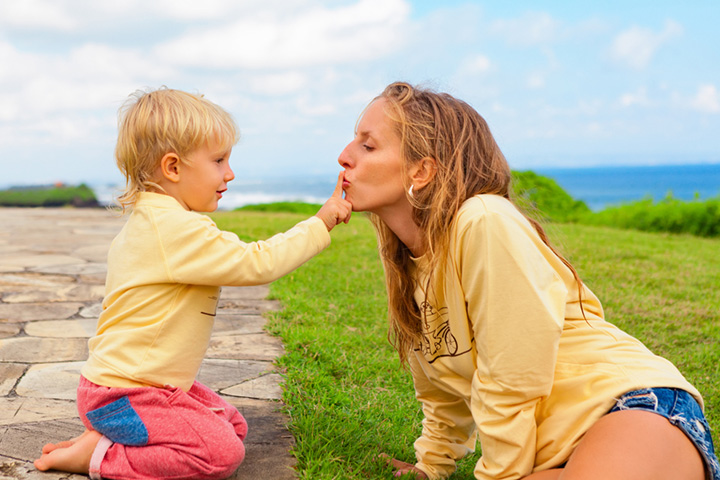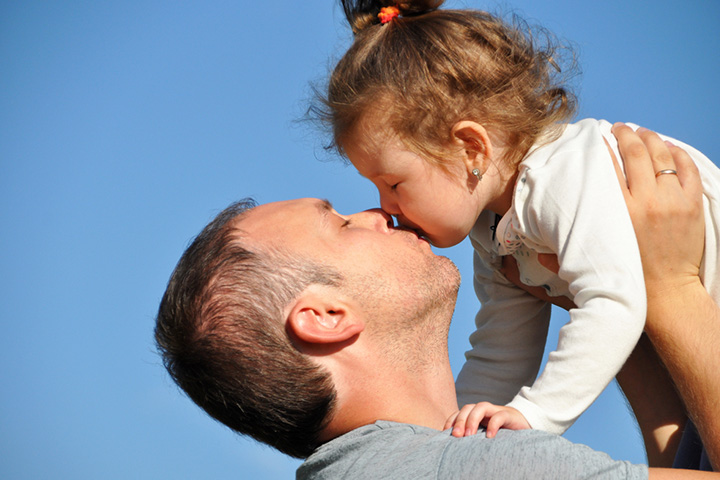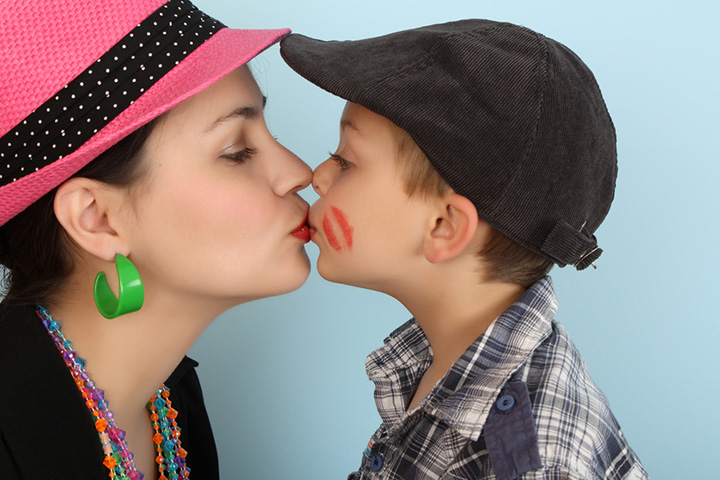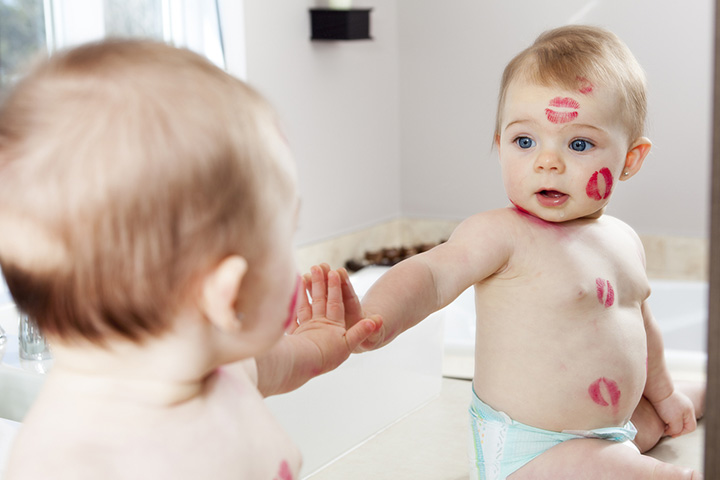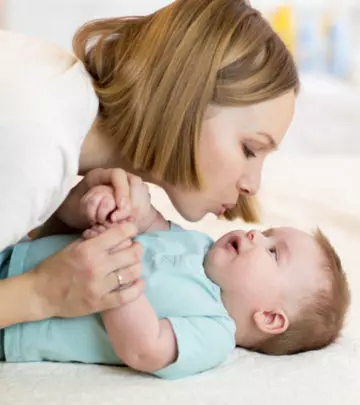
Image: Shutterstock
All parents wish their children to love them, and while we each have our unique methods of expressing affection, kissing is a universal gesture. Since the day your child was born, you’ve likely spent considerable time doting on them, and who can blame you? Your child’s cherubic cheeks and petite frame are practically begging to be showered with love and cuddles.
Some parents even exchange kisses on the lips. This practice is far from new; your own parents might have done the same. In certain cultures, lip-to-lip kisses aren’t reserved solely for romantic encounters but serve as a general display of affection. However, despite the seemingly harmless nature of this gesture, kissing your child on the lips may not be the most suitable way to convey parental love. Here are a few reasons why opting not to kiss your child on the mouth might be a wiser choice.
1. It Can Shift Your Child’s Understanding Of Personal Boundaries
Image: Shutterstock
If you want your child to know about personal boundaries, it’s a good idea to start teaching them early. Your child’s lips and mouth are like a personal space, and it’s important for them to learn about these boundaries, even with you. Some parents think it’s okay to kiss their kids on the lips because they love them, but they forget that it’s also important to teach kids to respect their own boundaries and those of others.
When you kiss your child on the lips, it might make them feel like their personal space is open to everyone, which isn’t a good message. This also applies to things like wrapping them too tightly, tickling them too much, or making them eat when they don’t want to. To help your child learn about boundaries, you need to show respect and not invade their personal space. Kids who have overly intrusive parents may find it hard to say “no” and set their own boundaries.
Have you ever thought that maybe your child doesn’t want to be kissed on the lips? It’s important to understand what they like and don’t like and create a safe space for them to express themselves.
2. It’s Unsanitary
Image: Shutterstock
You might believe it’s safe to give your kids a kiss, especially if you maintain good oral hygiene by brushing, flossing, and using mouthwash. What’s the harm, right? However, medical professionals, especially dentists, caution that our mouths contain a multitude of microbes that may not affect adults but can pose a significant risk to children (1). Additionally, your child’s immune system is not as robust, which makes them more vulnerable to potential infections that could be transmitted through your saliva.
It’s also essential to consider that using cosmetics on your lips can be harmful to your child’s skin. Many children have sensitive skin or may be allergic to certain cosmetic ingredients. So, it’s advisable to avoid kissing your children on the mouth when wearing cosmetics.
3. Your Child May Start Kissing Other People On The Lips As A Sign Of Sympathy
Image: Shutterstock
Your child takes their cues from you. This means that they will start behaving the same way you taught them to at home which isn’t always a good thing. Your child may sometimes be too young to differentiate between behaviors reserved for the family circle and those that must be modified for people outside of this circle. This may include close family friends, peers, friends and acquaintances. So chances are that if you kiss your child on the lips they may do the same to other people or children as a way to express sympathy or affection.
Image: Shutterstock
It’s important to remember that children often learn by imitating the behavior of their parents. So, if parents innocently kiss their children on the mouth, kids might try to replicate this gesture without fully grasping its intimate implications. This can potentially harm your child, as they may become more susceptible to unwanted advances from others.
For instance, if your child’s caregiver mimics the same mouth-kissing gesture, knowing that your child will respond in kind, it can create uncomfortable situations. That’s why it’s advisable to limit kisses to your child’s forehead or cheeks. Your child doesn’t require mouth kisses to feel loved.
Kissing your little one on the lips may seem harmless and cute but it can have negative implications that you did not see coming. We hope that this article shed some light on the cons of this behavior. But of course, every family and child/ parent dynamic is unique and you must always do what’s best for your kids. Would you still continue to kiss your kids on the mouth? Let us know in the comments section below!

